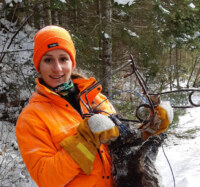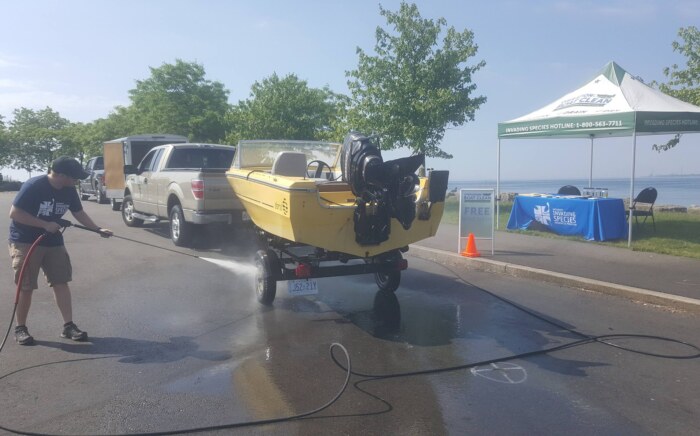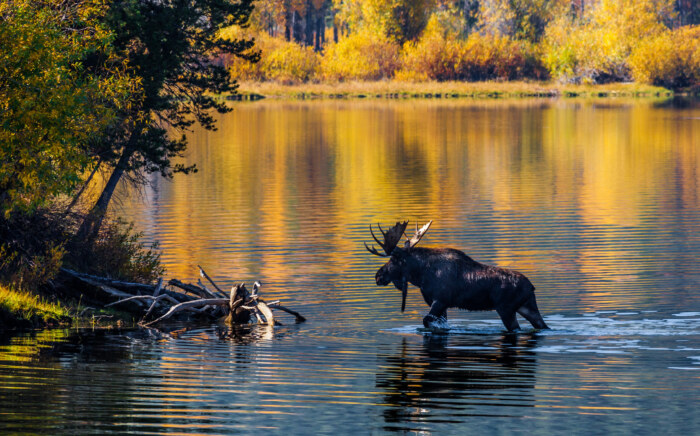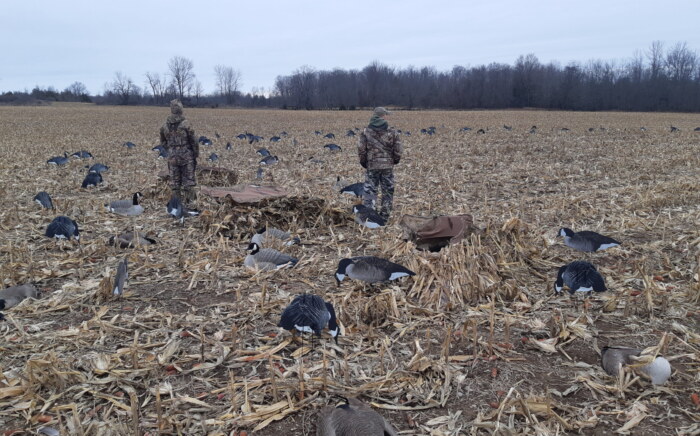In mid-December, Ontario’s Protect, Support and Recover from COVID-19 Act (Budget Measures) (Bill 229) received Royal Assent without any major amendments to Schedules 6, 8, and 40. You probably saw the headlines about changes to the Conservation Authorities Act (CAA), but there were also changes to the Crown Forest Sustainability Act (CFSA), and the Provincial Parks and Conservation Reserves Act (PPCRA) that relate to Ontario’s environment and those of us who use the outdoors. Here’s a look at some of the changes.
Conservation Authorities Changes
Many Conservation Authorities (CAs) provide valuable outdoor opportunities for angling and hunting in areas that have few Crown land options. In addition to providing recreational opportunities to our members, the OFAH works very closely with CAs through our conservation programs. The Bring Back the Salmon (BBTS) program uses data collected by CAs, such as fish communities, stream temperature and water quality, and watershed-based management plans, to help inform project priorities and restoration success. ALUS Peterborough works to support and guide farmers wishing to convert marginal farmland to functioning ecosystem, and the ALUS Canada model has been made possible and strengthened due to ongoing partnerships with and expertise from CAs in Ontario. CAs help the Invading Species Awareness Program distribute invasive species detection, monitoring, and education resources to the public, as well as carry out stewardship, outreach and restoration initiatives. Additionally, CAs were a valued partner in the OFAH’s Invading Species Hit Squad – a team of summer students hired to deliver community level outreach, monitoring, and/or management activities. Without the work of CAs, many of the OFAH’s conservation programs would have a difficult time meeting the high level of work that they do now. The changes in Bill 229 have the potential to restrict the programs that CAs are able to implement and potentially hamper the ability of CAs to work with the OFAH’s conservation programs in the future.
Additionally, the changes allow the Minister to override permitting decisions made by a CA; either through an appeal or by a Ministerial Order. CAs issue permits regarding development taking place near or on waterways or wetlands to ensure the development is safe from flooding and erosion, as well as protecting conservation land from development. This opens the door to allow the Government of Ontario to push through development projects that could pose watershed concerns, without the CA input. The OFAH believes that there should be some degree of oversight on CAs, however the ability to overturn decisions with the potential for little scientific backing is a major concern. Decisions about what should and shouldn’t be allowed to occur in a watershed need to be well informed by science, which is a more appropriate role for the CAs than it is for politicians.
Species at Risk in Forestry
The OFAH supports moving Endangered Species Act (ESA) requirements into the CFSA for forestry operations, as we believe it can provide for more flexibility and actually improve outcomes for species at risk (SAR). Ontario’s forest industry is well placed to benefit SAR beyond the traditional confines of the ESA. However, the changes appear to remove any regulation under the CFSA that would require forestry practices to avoid harming SAR. These changes put SAR planning and management solely in the forest management plan. The OFAH believes that SAR direction should not be based in policy, as it is much easier to change policy in the future without adequate consultation. The MNRF should develop and consult on regulations, that outline SAR management in the CFSA. With the shift of SAR management to the forest management plans it will be essential to increase broader general public consultation on those plans.
Provincial Park and Conservation Reserve Changes
Unlike most provincial parks, Conservation Reserves provide one of the few remaining areas (outside of Crown land) where anglers and hunters can recreate without additional fees or permits. Changes in Bill 229 created the ability for the Minister to charge for the use of conservation reserves. Anglers and hunters already spend a lot of money to participate in their chosen activities, and a large portion of this goes directly to the government in the form of licence sales. The OFAH will be seeking to ensure Conservation Reserve access remains free for non-commercial heritage activities like fishing and hunting.
Bill 229 also clarified the rules around the Minister’s ability to enter into lease agreements, create land use permits, and grant easements within Provincial Parks and conservation reserves. The transfer of public lands that many people may use to hunt and fish on out of the public domain will result in loss of opportunities and should be consulted on prior to the agreement.
A positive change brought forward is the ability for the Minister to make a regulation allowing the extension of a land use permit in a provincial park or conservation reserve to an individual who is not the current permit holder. This change could allow for land use permits, such as those required by hunt camps, to be passed down through generations. Keeping these areas in a family will foster the important traditions associated with angling and hunting for years to come.
Take Away
As with any omnibus bill, the recent budget measures brought in a number of changes that you may not have expected to find there. The OFAH is disappointed that the government did not provide the opportunity for the outdoors community to comment on changes that have direct impacts on them. We understand the desire for expediency in consultation, but when it comes to policies that have the potential to impact the environment, we need to ensure thoroughness in the consultation that influences them. The tremendous opposition to some aspects of Bill 229 are not necessarily a reason to make changes, but the magnitude and diversity of those expressing concerns should be a signal that more discussion is required. The OFAH is asking the government to be transparent and adequately consult on any policies and regulations that come out of the changes to ensure that the outdoor community can be involved in protecting what it loves – the outdoors.






Yes I am definitely becoming more and more sick and tired of our governments of all levels encroaching on our rights to enjoy our wonderful wilderness lands. As a boy I, with my my family used to spend many weekends fishing and exploring in the woods. I never went hunting as I was young but grandpa and uncles sure did.